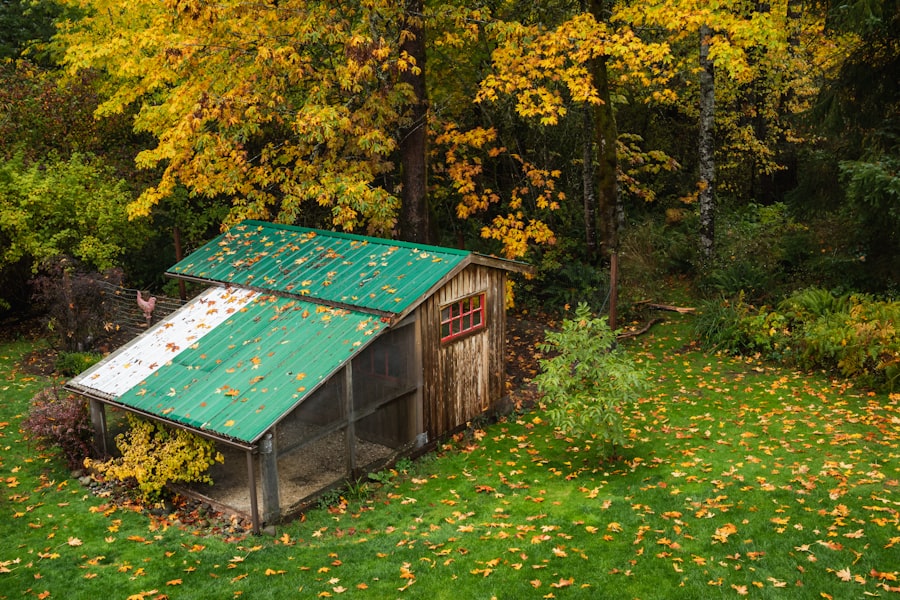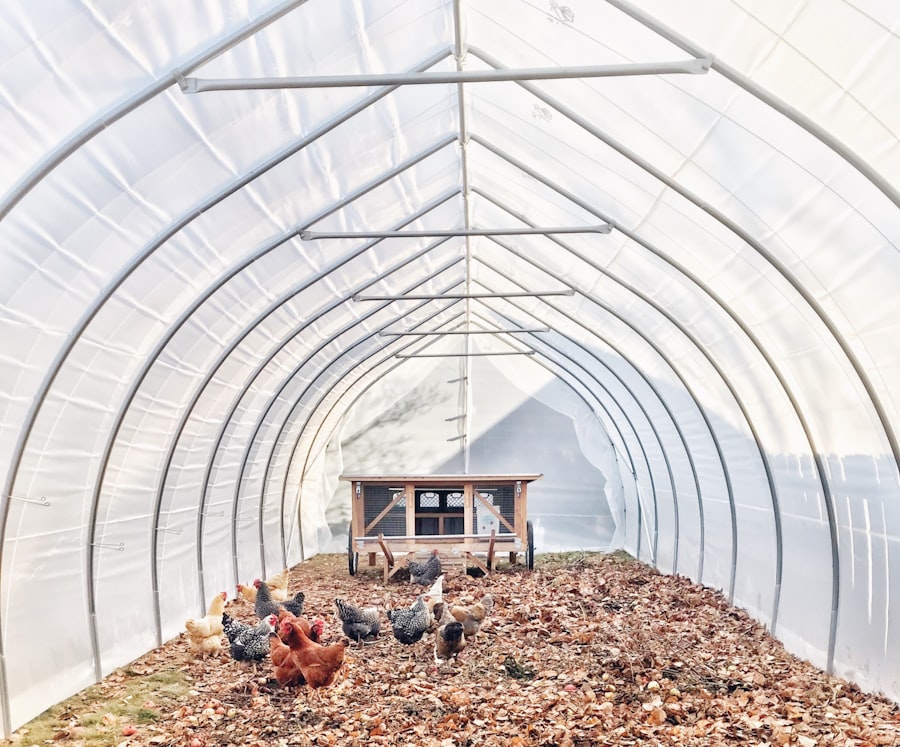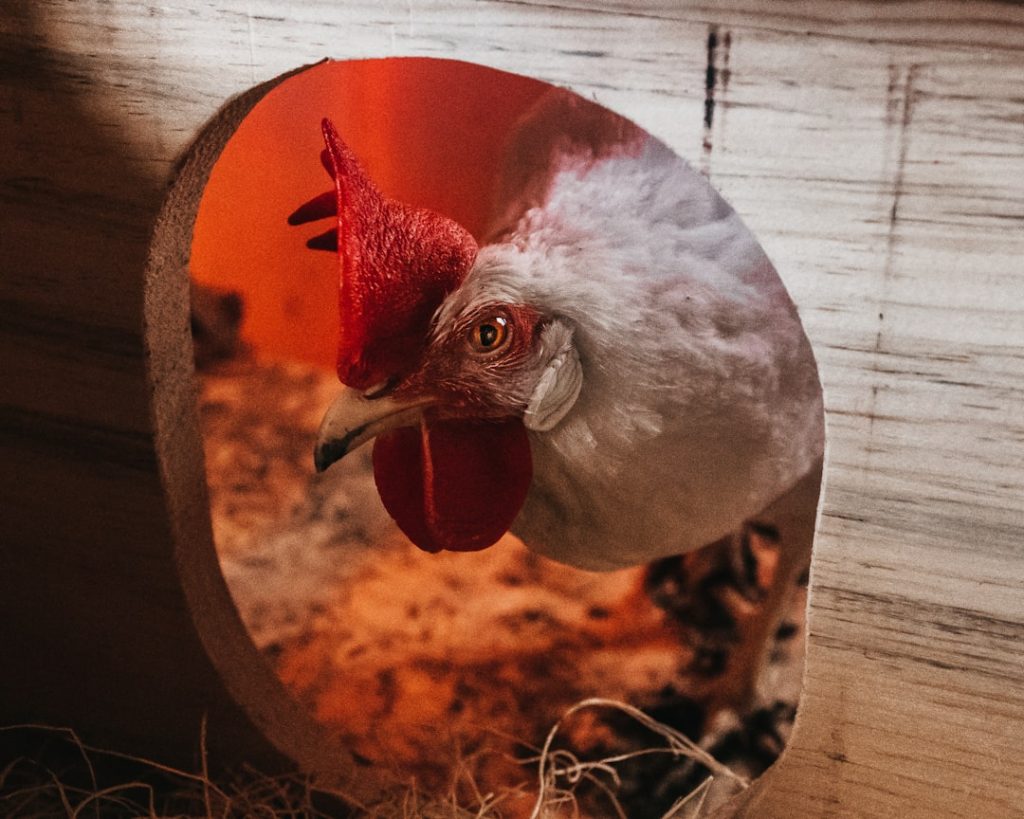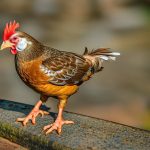Starting a chicken farming business requires several initial setup costs. The primary investment is in suitable housing for the chickens, which can range from small, DIY coops to larger, professionally built structures. Essential equipment includes feeders, waterers, nesting boxes, and heating lamps for colder climates.
The cost of these items varies based on the operation’s size and the quality of materials chosen. Another significant expense is the purchase of chickens, either as chicks or fully grown hens. Fencing or other predator protection measures are also necessary to ensure the flock’s safety.
The total initial setup costs for a chicken farming business can range from a few hundred to several thousand dollars, depending on the scale and scope of the operation. These startup expenses are crucial for establishing a functional and safe environment for the chickens, which is essential for the success of the farming business. The investment in proper housing, equipment, and birds forms the foundation for a productive and sustainable chicken farming operation.
Table of Contents
Key Takeaways
- Initial setup costs for a chicken coop include purchasing the coop, feeders, waterers, and heat lamps.
- Feed and bedding expenses are ongoing costs that should be budgeted for, including the cost of chicken feed and bedding materials.
- Health and veterinary costs may include vaccinations, deworming, and potential medical expenses for sick or injured chickens.
- Coop maintenance and upkeep are necessary for the health and safety of the chickens, and may include cleaning, repairs, and predator-proofing.
- Egg collection and storage require regular attention to ensure eggs are collected promptly and stored properly to maintain freshness.
Feed and Bedding Expenses
Feed Expenses
The largest ongoing expense for chicken farming is typically feed. Chickens require a balanced diet of grains, protein, vitamins, and minerals to stay healthy and produce high-quality eggs. The cost of feed can vary depending on the type and quality of feed you choose to provide for your chickens.
Bedding Expenses
Another ongoing cost to consider is bedding expenses. Chickens require clean and dry bedding material in their coop to stay healthy and comfortable. This can include materials such as straw, wood shavings, or sand. The cost of bedding will depend on the size of your flock and the type of material you choose to use.
Factors Affecting Ongoing Expenses
Both feed and bedding expenses can vary depending on several factors, including the size of your flock, the type and quality of feed and bedding materials, and the frequency of replacement. By understanding these factors, you can better plan and budget for the ongoing expenses of your chicken farming business.
Health and Veterinary Costs

Maintaining the health of your flock is essential for a successful chicken farming business, and this involves ongoing veterinary costs. Regular check-ups and vaccinations are important for preventing diseases and ensuring the overall well-being of your chickens. Additionally, you may need to budget for unexpected veterinary expenses in case of illness or injury within your flock.
It’s important to have a good working relationship with a local veterinarian who is experienced in poultry care. In addition to veterinary costs, it’s important to invest in preventative measures such as biosecurity protocols and proper sanitation practices to minimize the risk of disease within your flock. This may involve investing in disinfectants, cleaning supplies, and protective gear for yourself when handling sick birds.
Overall, health and veterinary costs are an important ongoing expense to consider when running a chicken farming business. Maintaining the health of your flock is essential for a successful chicken farming business, and this involves ongoing veterinary costs. Regular check-ups and vaccinations are important for preventing diseases and ensuring the overall well-being of your chickens.
Additionally, you may need to budget for unexpected veterinary expenses in case of illness or injury within your flock. It’s important to have a good working relationship with a local veterinarian who is experienced in poultry care. In addition to veterinary costs, it’s important to invest in preventative measures such as biosecurity protocols and proper sanitation practices to minimize the risk of disease within your flock.
This may involve investing in disinfectants, cleaning supplies, and protective gear for yourself when handling sick birds. Overall, health and veterinary costs are an important ongoing expense to consider when running a chicken farming business.
Coop Maintenance and Upkeep
Maintaining a clean and well-kept coop is essential for the health and well-being of your flock. This involves ongoing maintenance and upkeep costs such as replacing bedding, repairing any damage to the coop structure, and ensuring proper ventilation and insulation. Additionally, regular cleaning and disinfecting of the coop is important for preventing disease and maintaining a healthy environment for your chickens.
Investing in quality materials and construction when building your coop can help minimize ongoing maintenance costs in the long run. Additionally, having a regular maintenance schedule and performing routine inspections can help identify any issues early on before they become more costly to fix. Overall, coop maintenance and upkeep are important ongoing expenses to consider when running a chicken farming business.
Maintaining a clean and well-kept coop is essential for the health and well-being of your flock. This involves ongoing maintenance and upkeep costs such as replacing bedding, repairing any damage to the coop structure, and ensuring proper ventilation and insulation. Additionally, regular cleaning and disinfecting of the coop is important for preventing disease and maintaining a healthy environment for your chickens.
Investing in quality materials and construction when building your coop can help minimize ongoing maintenance costs in the long run. Additionally, having a regular maintenance schedule and performing routine inspections can help identify any issues early on before they become more costly to fix.
Egg Collection and Storage
Once your chickens start laying eggs, you will need to consider the costs associated with collecting and storing them. This may involve investing in egg collection baskets or trays to safely gather eggs from the nesting boxes without causing damage. Additionally, you will need to have proper storage facilities such as refrigeration or cool storage areas to keep the eggs fresh until they are ready for sale.
Investing in quality egg collection and storage equipment is important for maintaining the quality of your eggs and minimizing waste. Additionally, having a regular cleaning schedule for your collection equipment and storage areas is important for preventing contamination and ensuring food safety standards are met. Once your chickens start laying eggs, you will need to consider the costs associated with collecting and storing them.
This may involve investing in egg collection baskets or trays to safely gather eggs from the nesting boxes without causing damage. Additionally, you will need to have proper storage facilities such as refrigeration or cool storage areas to keep the eggs fresh until they are ready for sale. Investing in quality egg collection and storage equipment is important for maintaining the quality of your eggs and minimizing waste.
Additionally, having a regular cleaning schedule for your collection equipment and storage areas is important for preventing contamination and ensuring food safety standards are met.
Egg Marketing and Sales

Packaging and Transportation
Once you have collected and stored your eggs, you will need to consider the costs associated with marketing and selling them. This may involve investing in packaging materials such as cartons or containers for selling eggs at local markets or directly to consumers.
Food Safety and Quality
Investing in quality packaging materials that meet food safety standards is important for maintaining the quality of your eggs during transportation and sale. This will help ensure that your eggs remain fresh and safe for consumption.
Marketing Strategy
Additionally, having a strong marketing strategy that highlights the quality and freshness of your eggs can help differentiate your product from competitors. You may need to budget for advertising or promotional materials to help attract customers to your product.
Long-term Investment and Savings
Running a successful chicken farming business involves long-term investment and savings planning. This may involve setting aside funds for future expansion or improvements to your operation such as upgrading equipment or increasing flock size. Additionally, having an emergency fund set aside for unexpected expenses such as veterinary care or repairs can help ensure the long-term sustainability of your business.
Investing in sustainable practices such as renewable energy sources or efficient waste management can also help reduce long-term operating costs and minimize environmental impact. Overall, having a long-term investment and savings plan in place is essential for ensuring the continued success of your chicken farming business. Running a successful chicken farming business involves long-term investment and savings planning.
This may involve setting aside funds for future expansion or improvements to your operation such as upgrading equipment or increasing flock size. Additionally, having an emergency fund set aside for unexpected expenses such as veterinary care or repairs can help ensure the long-term sustainability of your business. Investing in sustainable practices such as renewable energy sources or efficient waste management can also help reduce long-term operating costs and minimize environmental impact.
Overall, having a long-term investment and savings plan in place is essential for ensuring the continued success of your chicken farming business.
If you’re considering keeping chickens for eggs, you may also want to think about the cost of building and maintaining a chicken coop. According to a helpful article on Poultry Wizard, the type of flooring you choose for your chicken coop can impact the overall cost and maintenance of the coop. To learn more about the different options for the floor of a chicken coop, check out this article.
FAQs
What are the initial costs of keeping chickens for eggs?
The initial costs of keeping chickens for eggs include purchasing the chickens, a coop, feeders, waterers, bedding, and other necessary equipment. The cost can vary depending on the number of chickens and the quality of the equipment.
What are the ongoing costs of keeping chickens for eggs?
The ongoing costs of keeping chickens for eggs include the cost of feed, bedding, healthcare, and any necessary repairs or maintenance for the coop and equipment. Additionally, there may be costs associated with pest control and other potential issues.
How much does chicken feed cost?
The cost of chicken feed can vary depending on the type and quality of the feed, as well as the number of chickens being fed. On average, a laying hen will consume about 1/4 to 1/3 pound of feed per day, so the cost can add up over time.
What are the potential healthcare costs for chickens?
Chickens may require healthcare for issues such as parasites, injuries, or illnesses. The cost of healthcare for chickens can vary depending on the specific issue and the treatment required. It’s important to budget for potential healthcare costs when keeping chickens for eggs.
In addition to the obvious costs of keeping chickens for eggs, there may be hidden costs such as unexpected repairs or upgrades to the coop or equipment, as well as potential costs for pest control or other unforeseen issues. It’s important to budget for these potential hidden costs when considering the overall cost of keeping chickens for eggs.
Meet Walter, the feathered-friend fanatic of Florida! Nestled in the sunshine state, Walter struts through life with his feathered companions, clucking his way to happiness. With a coop that’s fancier than a five-star hotel, he’s the Don Juan of the chicken world. When he’s not teaching his hens to do the cha-cha, you’ll find him in a heated debate with his prized rooster, Sir Clucks-a-Lot. Walter’s poultry passion is no yolk; he’s the sunny-side-up guy you never knew you needed in your flock of friends!







